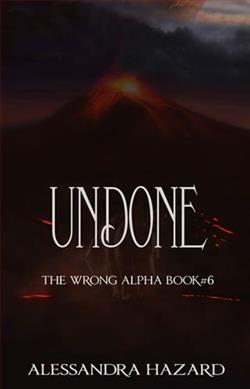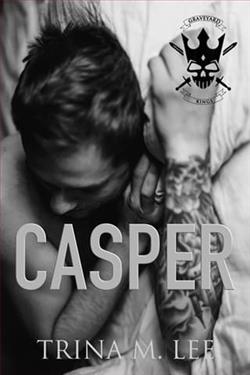Page 95 of The Monster's Daughter
We stay there for minutes, panting, trembling, clinging to each other.
We stood on the edge of oblivion, and we survived. We built meals from ruins, laughter from ashes, home from ghost towns.
I hold her closer. The stars beyond the window flicker. The night hums. Every scar on my back, every tremble in her hands, every laugh from our daughter—they all speak.
And I promise, under that silent sky: every scar, every word, every moment will still choose light. This is our story now, written in flesh and scale and unbreakable love.
CHAPTER 53
BELLA
Ash hangs in the air like memory—soft, gray, bitter. It clings to the inside of my nose, settles in my throat, grits between my teeth. The fire tore through Sector Alevin in under four hours. The emergency broadcast said “no casualties,” but that doesn’t mean there wasn’t loss. Homes. Heirlooms. Lives built brick by trembling brick.
Now, it’s a graveyard of smoke and soot, scattered with tents and tired eyes. And I’m back in motion—stabilizer pack on my belt, gloves caked in antiseptic balm, shouting over the crackle of portable power lines.
“Put pressure here!” I bark, guiding a jittery volunteer’s hands to a minor plasma burn on a boy’s leg. “Don’t dab—press. You’re not painting, you’re saving skin.”
The kid yelps. His mother tries to soothe him, but I already know the sound. Not pain—fear. He’s scared because everyone around him is. I hand him a lollipop from my side pouch and wink. “Tastes like cherry glue. You’re gonna hate it.”
He smiles, just barely.
“Bella!” someone calls from behind me. I turn, ready for another crisis, but it’s Natalie, running full tilt across the makeshift camp. Her boots kick up ash, and her curls bouncelike wild comets under the sun. She skids to a stop beside me, panting.
“Can I help the kitchens? Papa said they’re swamped.”
“Did you ask if they want help first?” I arch a brow.
“Yeah. Gake said I could chop if I wear gloves.”
“Then go. And don’t cut off your fingers.”
She makes a dramatic show of wiggling all ten. “No promises.”
Then she bolts, disappearing behind a prefab unit. I take a breath that burns on the way down and try not to let the smile crack my soot-streaked face. She’s not hiding her scales anymore. They shimmer faintly across her cheekbones in the sunlight—barely visible unless you’re looking. But they’re there.
And no one’s looking. No one cares. That does something strange to my chest.
By sundown, I’m soaked in sweat and adrenaline. My knees are starting to lock, and my shoulders ache like they’ve been socketed backward. Still, I keep going. There's always one more blister to wrap, one more inhaler to recalibrate, one more child to distract while their mother cries over lost birth records.
At one point, I find myself holding a toddler with sticky fingers and a snot trail that would shame a jelly eel. He clings to me like a life raft, tiny fingers buried in the collar of my vest.
“What’s your name, sweetie?”
He hiccups into my neck. “Julo.”
“Julo, huh? Bet you’re tough.”
He pulls back just far enough to squint at me. “You smell like fire.”
“Thanks. You smell like cheese.” I boop his nose. “Guess we’re even.”
When I finally get a break, it’s because Sorena all but yanks me by the elbow and shoves a water canteen in my hand.
“You’re gonna collapse,” she growls. “Then who’ll yell at the rest of us?”
I gulp down three mouthfuls. “Is that your version of concern?”
“It’s my version ofshut up and hydrate.” She jabs a finger toward the south tents. “Kids are playing tag. Go remind yourself what peace looks like.”















